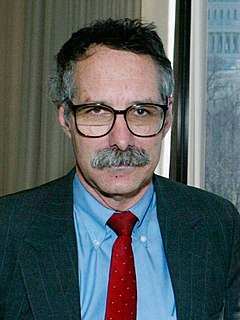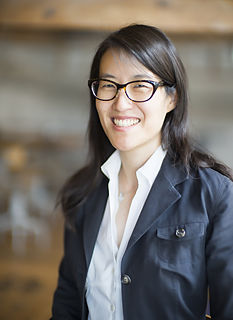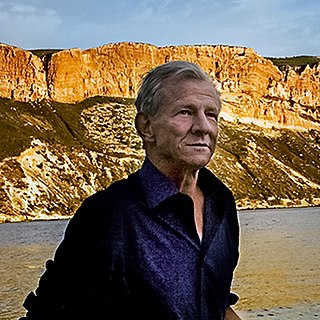A Quote by Robert J. Samuelson
People prefer to be with people like themselves. For all the celebration of "diversity," it's sameness that dominates. Most people favor friendships with those who share similar backgrounds, interests and values. It makes for more shared experiences, easier conversations and more comfortable silences. Despite many exceptions, the urge is nearly universal. It's human nature.
Related Quotes
You can now share your story anonymously much more easily than you could earlier and you can watch people have conversations about it. And when people come out and say negative things about you, there will be other people who have had similar experiences or who know people who have had similar experiences who will defend you.
I think that there is a middle-class desire, and maybe an almost universal desire, among many human beings to live in clean neighborhoods, among people like themselves, around people with whom they feel comfortable. That can be exclusive, it could be exclusionary. It could be racist, classist, genocidal, and so on. Most people like comfort. Now what provides a sense of comfort varies. I do think that people who like living in cities like small-scale human interaction and they like the social dimensions of aesthetic diversity that Jane Jacobs wrote about.
To those who feel that their values are THE values, the less controlled systems necessarily present a spectacle of "chaos," simply because such systems respond to a diversity of values. The more successfully such systems respond to diversity, the more "chaos" there will be, by definition, according to the standards of ANY specific set of values- other than diversity or freedom as values. Looked at another way, the more self-righteous observers there are, the more chaos (and "waste") will be seen.
We need more than individual value systems; we need a shared vision. A nation is held together by shared values, shared beliefs, shared attitudes. That is what enables a people to maintain a cohesive society despite the tensions of daily life. That is what enables them to rise above the conflicts that plague any society.
As an activist, you do find yourself directed more toward public action. But I've always tried to use stories from my own life in my writing for instance. It has always been clear to me that the stories of each other's lives are our best textbooks. Every social justice movement that I know of has come out of people sitting in small groups, telling their life stories, and discovering that other people have shared similar experiences. So, if we've shared many experiences, then it probably has something to do with power or politics, and if we unify and act together, then we can make a change.
Do you like people? Most people claim that they like people with, of course, a "few exceptions." When the exceptions are added together it becomes clear that they include a vast majority of the people. It becomes equally clear that most people like just a few people, their kind of people, and either do not actively care for or actively dislike most of the "other" people.
If you're a progressive, you can find lots of people who call themselves conservatives, but who agree with you on lots of things. There are people who call themselves conservatives, but who love the land as much as any environmentalist. Progressives share a number of common values with people who call themselves conservatives. Barack Obama has understood that very well. What he calls bipartisanship is not adopting conservative views, but finding where people who consider themselves conservatives share with him and other progressives these fundamental American values.

































